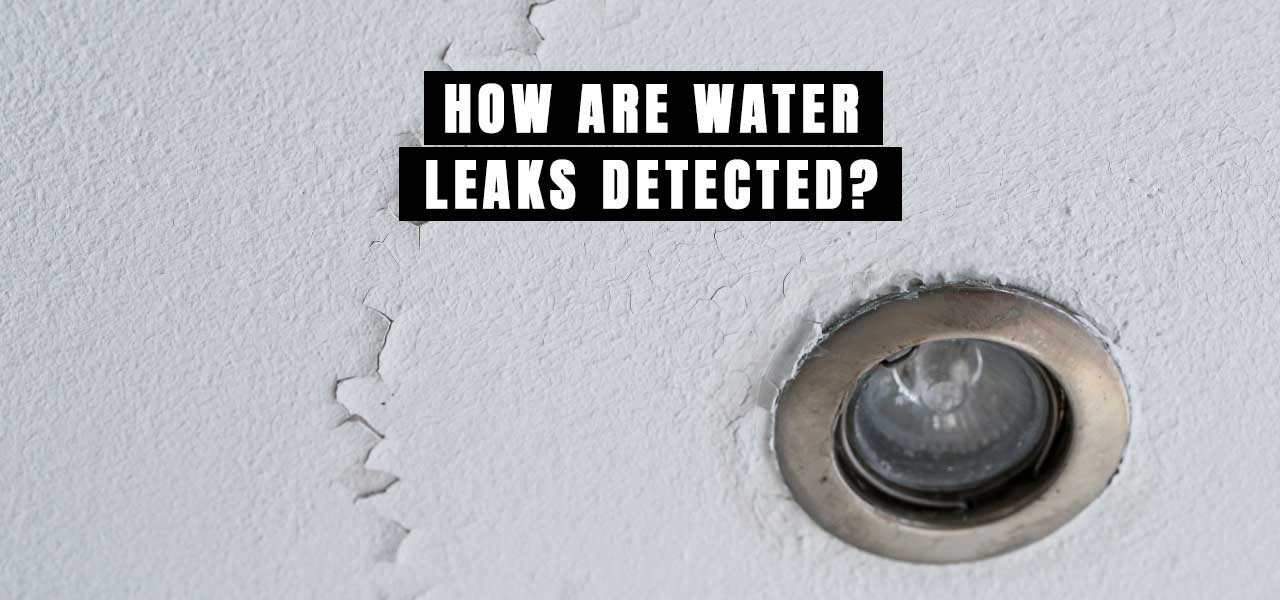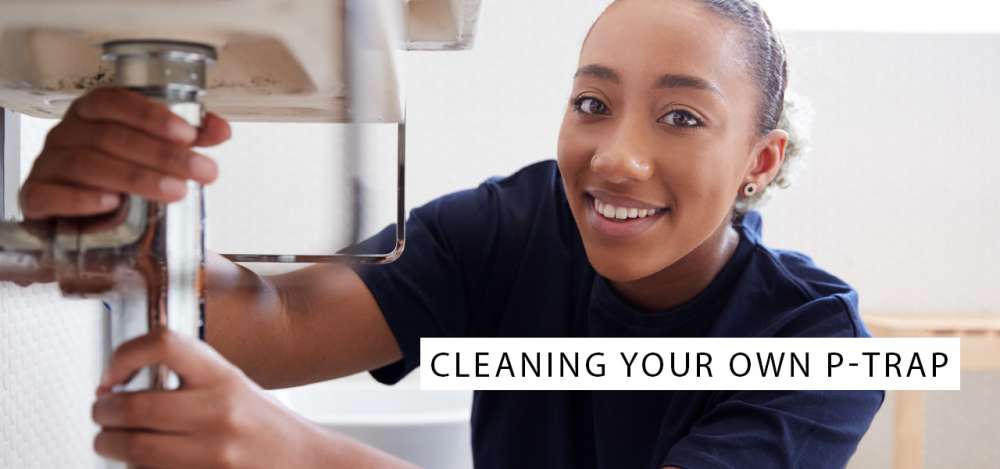We’ve all done it.
Searching out the perfect home for you and your family can be a long, torturous process that saps all your energy for weeks or even months.
And then it happens.
You find THE house. After countless internet searches, open houses, and meeting more realtors than anyone should have to endure, the perfect place reveals itself. Offers are made, deals are brokered, and it’s almost time to sign on the dotted line and take on the most significant financial commitment of your life. All that’s left is to bring someone in to inspect the home for any current or impending problems.
When you’re shopping for a new home, it’s easy to get caught up in the aesthetics and fail to take a more in-depth look at the house’s existing problems.
But Who Do I Hire for a Home Inspection?
There is no shortage of local handymen that advertise whole-house inspections, and they’re a great choice, provided they have the proper training and licensing. Having a Texas issued home inspector license does not mean that the licensee is an experienced contractor. Obtaining a home inspector license does not require the holder to have any construction experience at all.
Are you confused yet? Good, ’cause we’re not done yet.
The best-case scenario for home inspections before purchasing a home is to have a whole-house inspection performed by a licensed home inspector. Also, you should hire a licensed plumbing company to inspect the plumbing system from end-to-end. While the home inspector may be well-versed in the structural integrity of your home, they lack the knowledge of plumbing systems required to inspect them thoroughly.
The local home inspector can check the plumbing fixtures’ functionality and locate signs of water damage that could indicate a plumbing leak. It is unlikely that a home inspector will perform specialized plumbing checks, like video camera inspection or hydrostatic testing, that tests the plumbing’s integrity. Bypassing the plumbing inspection before buying a home can result in not discovering thousands of dollars in repairs that need to be made until you’re moved in and comfortable.
Used Homes Require Due Diligence Before Purchase
Pre-owned homes are used homes and should be referred to as such. And as is the case with anything you can purchase used, there’s a responsibility on the part of the buyer to ensure that the item is in proper working order. You wouldn’t buy a ten or 15-year old car without having it inspected by a qualified mechanic, right? Why wouldn’t you apply the same standard to what may be the largest purchase you’ll ever make, your family’s home?
Please don’t be shy when it comes to your potential home purchase. You’re allowed to be nosy and poke your head in every nook and cranny of the property. Plumbing issues are one of those things that can be overlooked when you’re busy marveling at the quartz countertops, hardwood floors, and bay windows.
Common Plumbing Issues to Look for Before Buying a Home
Leaky Toilets
Flush every toilet to ensure they’re working correctly and check around the tank’s bottom for leaks. Listen carefully. Does it sound like water is continuously running? If so, this could mean that the chain or flapper needs to be replaced, or the toilet may need an overhaul, certainly not a deal-breaker.
Check around the toilet base for any moisture, discoloration of the caulk around the flange opening, or flooring that feels “soft” adjacent to the toilet. Leaking toilet flanges can cause extensive water damage in a short amount of time, especially when it occurs in an upstairs bathroom.
Ceiling Stains
Don’t forget to look up when touring your potential new home, and check the ceilings for any stains, which can indicate plumbing issues in the attic or on the second floor. Water stains on ceilings can also result from a leaky roof, and determining the leak’s location can be addressed during the whole-house inspection.
Outdated Water Heaters
Ask the seller or real estate agent how old the water heater is. If they don’t know the answer, chances are they’ve never replaced it. The average lifespan of most water heaters is seven to ten years, and if the home’s current unit is closing in on that date, you could be the one stuck having to replace it. Replacing a water heater isn’t cheap; and will set you back anywhere between $1,200 to $5,000 depending on the type you get. Tank-type water heaters will be on the low end of that scale, with tankless units starting at around $4,000 installed.
Slow Drainage
When you’re touring the house, turn on every faucet and showerhead, and let the water run for a few minutes. The speed at which these fixtures drain is a good indicator of the home’s plumbing condition. Slow drains can be a sign that your drainpipes and sewer lines are becoming clogged with buildup, or there’s some blockage somewhere within the plumbing.
Many items can block drain pipes or sewer lines, from kitchen waste scraped into garbage disposals to flushing too much toilet paper. Most slow drainage issues can be remedied by having a licensed plumber perform drain snaking or hydro-jetting service to restore water flow.
Call Nick’s for Your New Home Plumbing Inspection
Nick’s highly skilled and licensed plumbing technicians have completed extensive training in all areas of home and commercial plumbing service, repairs, and installation. Let Nick’s assess whether your potential home has plumbing problems and what the cost of repairing them may be. The information from a plumbing inspection can also be used as part of the negotiations for determining the home’s sale price.
Nick’s Plumbing & Air Conditioning is a local, family-owned plumbing that Houston has trusted since 1979. Schedule an appointment with one of Nick’s friendly plumbing technicians today.
Learn More About Buying a Home with Plumbing Problems in Houston.
Nick’s Plumbing and Air Conditioning Live Video Transcription:
On today’s show, buying a house with plumbing problems in Houston.
I’m John Eccles, Richard Saad in a perfect world, You go look at a house. It’s the one that is it. This is my house. I want to buy this house. Right? Yeah. And then all of a sudden you discover when you hire somebody to do a home inspection that maybe there’s problems. Maybe there’s not. You move in and in a perfect world, everything works out great, doesn’t it? That’s right. And Houston, it doesn’t exactly operate like that. Life’s not perfect now, not even with a new house. That’s true. I can’t even tell you guys in a and a new homes, how many items need to be fixed before you close, and that’s typical, right? That these home inspectors find. Now, what does the home inspector not do?
Oh, he’s not a plumbing specialist for sure. Correct. There’s a bunch of things that he doesn’t do.
That is correct. One of them is plumbing farmings behind your walls, under the slab in between attic and floor space or second story in floor space, you can’t see it. Right, right. The most of the guts are covered up. Yeah. Right. Yeah. So he can only do what he can do and that means a visual inspection. That’s right. So on the day show, how do we go deeper? How do we go more, um, below the surface, below the surface? There’s the word I’m looking for that’s right. And figure this stuff out, right?
Yeah, absolutely. You know, home inspectors are great for overall, especially like you’re saying, the visual thing, but I mean, if you’re talking about buying a home and let’s face it, homes aren’t cheap, right? It’s probably normally, normally the number one investment that someone’s going to put down for themselves in their life. I would think that you’d want to check out things that that could be a potential issue or problem that you’re going to have to pay for after the fact and make sure those things are okay prior to that big purchase.
But wait a minute, John, the homeowner’s sign, the nondisclosure, I mean a disclosure statement, right? All right. He said everything’s good. Well, that’s true. But here’s the thing. If the home inspector doesn’t find it in the seller, didn’t know about it or can they be blamed? But then the next question is our answer. How many top phone calls and how many times have we gone to people’s homes where they just move in and there’s sewers completely shut down? Yeah. Well I just didn’t happen yesterday. Nope, it’s been happening. So what are the homeowner do? He lied. Yeah. What a concept that’s being deceitful. Right? But that happens more than what you guys know that these, the homeowners don’t divulge what’s happening within their home. They expect you to pick it up and if they don’t get caught, oh well, and then all of a sudden you get in there and you’ve got to complete shutdown on the sewer and then all of a sudden your whole mindset goes, well, I’m going to sue that guy.
Well, how does that work out? It never works out. It never works out. Well, you’re chasing good money after bad money when you could fix the sewer because nothing’s going to come up and you have to prove that he actually knew that he had a problem with sewer and just cause we went over there and unstopped at a year ago doesn’t prove anything try. Right? Yeah. You can use my tickets if I’d been to that house and say, well I unstopped at every four months and I recommended replacing the sewer. Well there wasn’t a problem when he sold the house was there, get it? Yeah. That’s where it can go and you’re gonna lose.
And so the best way to, to not be in this situation is prior to just having that home inspector doing everything or prior to closing on that house, haven’t actual licensed plumber come out to your home and check the plumbing system. We’re talking about the plumbing system that all inclusive is probably worth, you know, probably 40% of your home. Right. When you said it’s close is that we’re about right. 35, 40%. You know, especially when you’re talking about repair plumbing versus new construction where you know, things are in the way, the walls are up to slabs already poured, stuff of that nature. So I mean, it’s a vital part of the wellbeing of your home and it has some high ticket items that could possibly be damaged or not of any use to you and you’re going to have to repair or replace it. You know, you know what that’s called due diligence. That’s it. Do your due diligence. Yeah. Right? Yeah, absolutely. I mean, and it’s on you to do that. And a home inspector is fantastic. They’re great. They have a certain position that they can do and not do and take. Um, and that’s why you need to hire a plumbing company to finish these inspections right now, whether your real estate agent tells you or not, you need somebody like us to do what you call hydrostatic testing. Right? Right. And visual checking. Yeah, absolutely. And pressure checking. So when we’re, when we’re talking about these kinds of inspections, you know, and what we like to do for homeowners is, you know, let’s go through the list of things that can go wrong, right? Number one thing is probably the sewer line sewer line and the, the homes drink system. Um, you know, a very easy way to check that would be a camera inspection that’s not really intrusive Rye west where we get to visually see the inside of your pipes. What do they look like, what are they made of, what material is it? So that way we’ll get an age, what condition is the insight in?
Or is there any separations, breaks, anything of those natures. Right? And then we can take that next step, what Richard said, hydrostatic test if we want to go further. And that’s where we’re literally putting it, basically filling up the drain system with water and plugging it. Uh, so I can’t drag it out and seeing if there’s any cracks that it’s going to leak through. If there’s any way that the water’s escaping. Um, those are very important. You know, a sewer system and entire sewer system is very expensive. You’re typical sewer line probably averages in the range of three to 5,000 bucks. That’s the outside sewer line under your house. You’d probably triple that easily. 20 grand, 30 grand, easy depending on how big the house, depending on size, obviously in different variables for the sewer line, you know, we breaking up concrete or we’re not breaking up concrete.
I literally talked to a gentleman this morning about this exact thing, uh, buying a house. Um, had it inspected, he used another company, which is great. And I know the company that he did and it was a good choice, right? Um, and that company doesn’t do repair work. So he called us, hey, I just need to know, you know, ballpark, what am I looking at? [inaudible] and of course I’m looking at a drawing that’s called a lot. Yeah. So I’m looking at a drawing and me and him went through some stuff and he says, look, just give me a range. That way you’re not wasting your time. And so I told him in his range was over 20 grand right. Easily and he’s like, Oh wow, okay. You know, does that makes a big difference on what I’m going to go back to the seller with cause we know that it’s in poor condition.
Well that’s something that man, we hear it all the time. I just bought this house, we’re having a sewer issue and they call the time. It could be taken care of input into the contract with a three to $600 test. Right. But that’s correct. Yeah. You know another thing that you know a lot of times they look at these, but man an in depth, look at your water heater wire, which is probably second or third most expensive plumbing appliance or plumbing portion rights who are probably number one, probably your water system number two, water heater number three depending on what kind of water here you have, what condition it is. The things we want to look for is, hey, how old it, right? Where’s it located? Is it located over my garage and my garage and a closet over the living room, the living area.
And it’s 12 years old. I have potential for leak in the my living space. Once I get everything moved in, that’s something that nobody wants to have happen. So no one the age, no one where it’s located. Knowing what kind of water heater you have, is that a tank style is at a tankless? Does it look like it’s been maintained? Does it not look like it’s been maintained? You know, lots of times we tell our customers if they are buying a home in the water heaters aged over seven years, it’s a good idea to ask for concession for replacement. Correct. Right. I would, every time you might not get it, their response back to you is going to be, well, it’s working. I’m not gonna, I’m not gonna pay for something that’s working well. Just understand that seven year old tank can go out any day.
Yup. That’s the bottom line in Houston, right. Go out any day. So you need to have enough money set back to be able to pay for that. If they’re not going to and you still want to buy the house, what’s the average cost of those? Well let’s give a range of 1,820 500 that’s for tank. That’s for a tank tankless should probably four to 6,000. Yeah. So I mean, and again, these are all ballpark averages. There’s a bunch of variables that go into all this kind of stuff. But you know, that’s what we tell customers when they call and ask us, you know, those are the kinds of things that happen and if you’re not getting to checked out thoroughly, it can bite you. That’s right. Yeah. And another easy one, and this one kind of, you know, gets, gets overstep some, you know, my mom used to always say this, you can tell a lot about a person in their home by their toilet and how well it’s kept.
That’s right. That’s right. I don’t know if that’s true or not, but you know, every time I go to someone’s house in a p I pay attention to it. Right. But, you know, so, you know, when we’re talking about toilets, you know, there’s things that get this, uh, just put it pushed off. You know, is it rock right rocking commodes? Is it discolored at the base? Um, how old have the commodes Ben? How old are they? Uh, in there, right then, you know, a rocking base and discoloration on the floor. It can be what? Possibly broken plans and plans. Right? Broken flange. Which aid not super cheap to fix? No. All right. Uh, what if the commode needs to be replaced? What do commodes go for? You’re looking at a cheap one. It’s 600. Yeah. One that’s like dirt cheap. Yeah. Now of course that’s, and it’ll go up to 10 granted.
And of course that’s purchase of commode and installed. So I know sky’s the limit on toilets then. Yeah. Yeah. You can spend 10 grand, I don’t want to get beat up in our comments about us. He went to Home Depot for 175 bucks. We’re talking about purchase of installed by licensed plumber. Um, but yeah, so I mean all those different things, especially on the total it can, can really take effect. And it’s just another thing that people will totally just look past district cause they go like this, oh look how big this bathroom is. And then a week later, hey or come out and don’t work. Well, we’ve got to replace that. I look, the one in the hall didn’t work. Neither am I committed during the House for Oh heck 600 times four radnet were ended up reading. Those are cheap toilets. Those aren’t expensive toilets, you guys. Yeah, it can really add up. That means you’ve got to do your due diligence and a home inspector does a great visual check, but you need to go more in depth. That’s the bottom line when you’re purchasing a house, right? That’s right. Now, going back to what I said earlier, when you’re, you’re talking about new construction or you’re talking about a house that’s been constructed at a certain age. It’s the same thing. The same due diligence needs to happen and I want to tell everybody a story. This happened in my career five years ago and I went over to this house to, to look at this. I couldn’t believe it. This house was a monster.
It had, what was it, six and a half bathrooms, beautiful house. When the homeowner, the new person purchased it at a brand new home, new purchase, new person purchased it, the builder went out of business, right? She finished the house herself and moved in, started using the master bathroom. The other bathrooms weren’t heavily used. Uh, next thing you know, the master bathrooms, not draining feces and stuff are coming up in the shower. Okay. So we went over there and started trying to figure out what was going on. We couldn’t get it to drain. So then we went further in our due diligence and uh, ran the camera system. They ran the entire trunk line to this house backwards, which means the whole house was draining to the master bathroom. Wow. And the house got inspected. So you ask, how can this happen? Right? Even in a new house, house got inspected right by the city.
Well, this is what people don’t understand. The city is here to protect you. The city is here to protect us as well, right? But they’re here to make sure we’re not using illegal fittings, putting things backwards. They’re not checking fall and slope. They don’t care about that. They just want to make sure that we’re installing the system properly. Right, and again, this is why it’s so important that you do your due diligence before you buy a house. Because this would have been caught before. I also asked me how much the fix was. I’ve got a question. How much does it fix? That hundred and 40,000 that was $140,000 fix. Now you just bought the house, right? Builders out of the year you’re, you’re pretty much going to have a heart attack and the builders out of business and there’s nothing you can do. I mean that house is not livable.
Wow. Yeah. Nothing you could do. Nothing she could do. You had to fix it or sell the home and disclose it after she had just bought a box of matches. Yeah, that’s a tough one. She didn’t do her due to due diligence. She had a home inspector. The guy did a fantastic job. He pointed out another 50 things that were wrong, but you can’t do plumbing. Yeah, you need somebody like us to do plumbing. So well you should take away from today. Show is due diligence. Yeah, right. It is on you. It’s not on anybody else. You have to do that and spend the money. So you know upfront what you’re getting and what you’re going into, whether the house was just built or if it’s older, it doesn’t matter.
Let’s try it. So last item on my list is probably it ranks right up there with the sewer line is definitely number one or two when it comes to probably the most important things you want to check and it’s going to be your water supply system. When we say that, that encompasses a lot of things, but mainly what we’re talking about is the water supply coming into the home and that it carries it to your faucets, right? So the water piping that’s normally in your walls or in your attic, right. And what’s very important on this piece is material in age. How old is it and what material is it? What kind of cause if you got galvanized, all right. Oh man, we know that that’s going to have to be replaced as as some point and probably sooner than later. You know? Um, another thing to look out for.
It would be probably the water pressure in the home and that’ll take you right back to what material it is, right? Normally if you have low water pressure, again, you’re going to see that galvanize puppet’s head. But Hey, hopefully it’s copper, maybe you know, pecs, right? CPVC right. But, uh, you definitely want to know those things cause that that is not only is it an expense, but there’s some light construction, I guess you could call it, that normally happens when something like that goes bad and needs to be replaced or repaired right now, the, going along with that, obviously we would check, you know, supply lines shut off valves to make sure they’re operating properly and that none of them are swollen or stainless steel braided. All the great stuff that we want to ensure that your home is going to be safe and sound. But if you’ve ever seen one of our shows, we talk about what a repiping a lot and um, it can be disastrous for someone that doesn’t know what they’re looking for and that problem come up. Um, and it’s, it’s, it’s a fairly big expense. Again, that’s probably number one or number two on the list depending on the home. You know, the average cost of those is what, 4,510 grand again, a lot of them big. Yeah.
And how it’s ran. Yeah. I mean we’ve done them as high as 50. Yeah. Yeah. So it depends on the house, how it’s built, how many bathrooms. Uh, it depends on that cost. Yeah. But if you’re looking at a typical home in Houston is two and a half bathrooms, right? You’re looking at between 10, 15 grand typically. Yeah. You know, and so again, you know, we start adding up the average cost that we started talking about across our little little cheat sheet here. And again, we’re not talking, we’re not getting really deep. We’re just going big ticket items. Right. Are they just big ticket items? There’s faucets that we didn’t touch. You know, you get to know a house and has, you know, 60 year old faucets on every, you know, sync. That’s a big deal. What about sinks? What condition are they? I mean, there’s a ton of different things, but these are the big ticket items because I mean you’re talking just in what we’ve been talking about is, you know, depending on the house, 30 to $70,000 of problems that we’re trying to help you avoid with the few, few expert, you know, eyes on it. That’s all it is.
That’s right. So would that be, and said, if you plan on buying a home and you’re not sure if it has a problem or not, give us a call and we’ll be happy to come. Put a set of eyes on it and look at the home inspector’s report and see what he says and dig a little deeper. And like Richard said, we want to get below that surface and really find out what’s going on with that home before you make that purchase. When you say totally agree, we’re always here. You have a question, you have a concern. Give us a call. We’re always at the office. We encourage you to call, use our knowledge, get the information. We will give it to you. That’s right. Thank you. Thank you. I’ll see y’all next week.


























